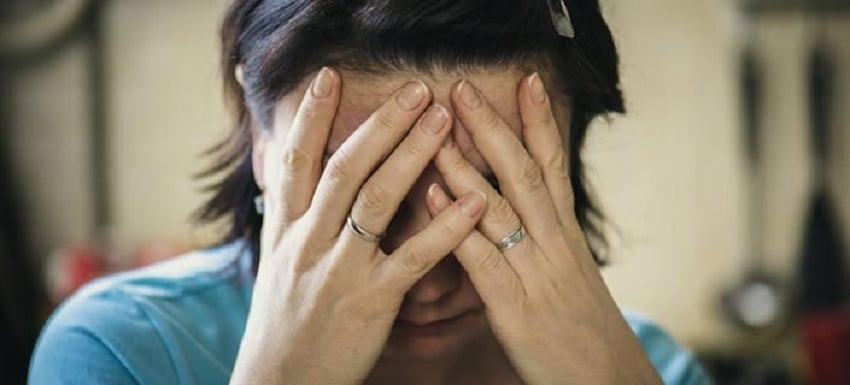Every lady experiences menopause, it’s a fundamental part of your existence and there’s not a way to skip it. Referred to as “change” or climacteric, menopause is strongly connected with several signs and symptoms including menopausal flashes and sweating. All ladies will vary, meaning they experience these signs and symptoms of menopause differently. For example, one lady might have mild menopausal flashes, while they may be quite severe in another lady. Besides physical, menopause also offers mental signs and symptoms for example depression. But, could mental and physical signs and symptoms correlate? The most recent study demonstrated that experiencing night time menopausal flashes can lead to depression. Continue studying and uncover more helpful info on the bond between menopausal flashes and mild depression.

Night time Menopausal Flashes and Depression
During menopause, nearly all women experience moodiness, anxiety, and a number of them even be depressed. Simultaneously, additionally they experience menopausal flashes, sleep disruption, and fluctuating hormonal levels. Since different signs and symptoms occur simultaneously, their true relationship is tough to evaluate.
Hadine Joffe along with a group of scientists in the Harvard School Of Medicine in Boston transported out research whose primary objective ended up being to investigate whether depressive signs and symptoms are associated with menopausal flashes or they may be described by impaired sleep cycle or oestrogen fluctuations.
The study incorporated 29 healthy, premenopausal women with mean age 27.3. To examine the connection of those signs and symptoms, scientists used a GnRH agonist (GnRHa) experimental model. This can be a medication that suppresses oestrogen production within the ovaries for any four-week lengthy period. The objective of medicines would be to mimic menopause and induce menopause-like signs and symptoms. Before and 4 days following the administration of GnRHa, they assessed depressive signs and symptoms, sleep parameters, sleep quality, serum estradiol, and menopausal flashes. Also, participants completed mental health questionnaires at the start and finish from the study.
Findings, printed within the Journal of Clinical Endocrinology and Metabolic process, discovered that 69% of participants experienced menopausal flashes. Furthermore, worsening of mood was easily predicted by increases over time see how to avoid sleep, subjective sleep quality, reductions in perceived sleep effectiveness, along with a number and harshness of night time menopausal flashes reported. Interestingly, daytime menopausal flashes weren’t connected with depression. Which means that a lady who encounters menopausal flashes during the night and doesn’t get much sleep due to these issues is more prone to develop mild depression than the usual lady who doesn’t suffer from these complaints.
Scientists explain that signs and symptoms of depression developed after amounts of estradiol dropped. They figured that depression seemed to be strongly connected with sleep disturbance and the amount of night time menopausal flashes.
Joffe explains that ladies who report night time menopausal flashes and sleep disruption should, also, be screened for mood disturbances. The study team also adds that any management of mood signs and symptoms in menopausal women should incorporate a highly effective manner to alleviate impaired sleep night time menopausal flashes.
Sweating & How you can Fight Them?
Night time menopausal flashes, or just sweating, are among the most typical signs and symptoms of menopause. Even though they aren’t harmful, coping with them can be very frustrating so that as you’ve seen above, they might also result in depression. So, what is the method to fight them or reduce their impact? Yes, below are great tips you’ll find helpful:
Identify and steer clear of Triggers – menopausal flashes and sweating will have certain triggers which make them worse and intolerable. You can begin journaling, write lower when you have these signs and symptoms in addition to what have you do before they happened. Undergo your journal regularly and you’ll recognize the pattern. Common triggers for warm flashes and sweating are spicy foods, warm rooms, stress, consuming alcohol and caffeine, tight clothes, heavy blankets and sheets in your bed, and so forth
Slim Down – obese or overweight women experience sweating and menopausal flashes inside a greater intensity. Weight reduction may also help you prevent various illnesses. Now you must another need to start exercising
Exercise – sedentary women experience menopause signs and symptoms in a greater intensity than their physically active counterparts. One study discovered that physical exercise helps relieve the seriousness of insomnia, menopausal flashes, irritability, and depression. The kind of exercise depends upon you, make a move which makes you are feeling great with regards to you.
It’s also wise to:
Put around you awesome, lighter fabrics
Avoid dehydration
Encourage air flow inside your bed room, fan is usually a good idea
Don’t exercise before going to sleep, get it done throughout the day
Relax: possess a nice bath, read a magazine
Convey a frozen cold pack beneath your pillow, turn the pillow over every time you seem like you have to awesome lower
Conclusion
During menopause, women experience different physical and mental signs and symptoms. The most recent study demonstrated that menopausal flashes throughout the night (although not during daytime) can lead to mild depression. Scientists claim that ladies who experience sweating and impaired sleep ought to be screened for mood disturbances.
The most crucial factor would be to acknowledge the bond between menopausal flashes and mild depression, seeking specialized assistance and counseling. As needed try taking some menopause product with physician consult, as it assists to to battle using these menopause signs and symptoms.
